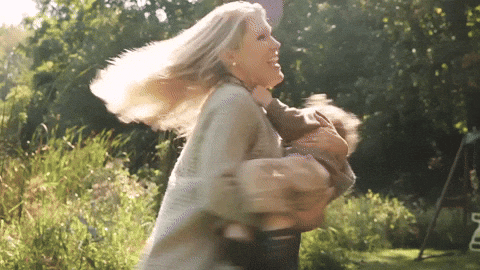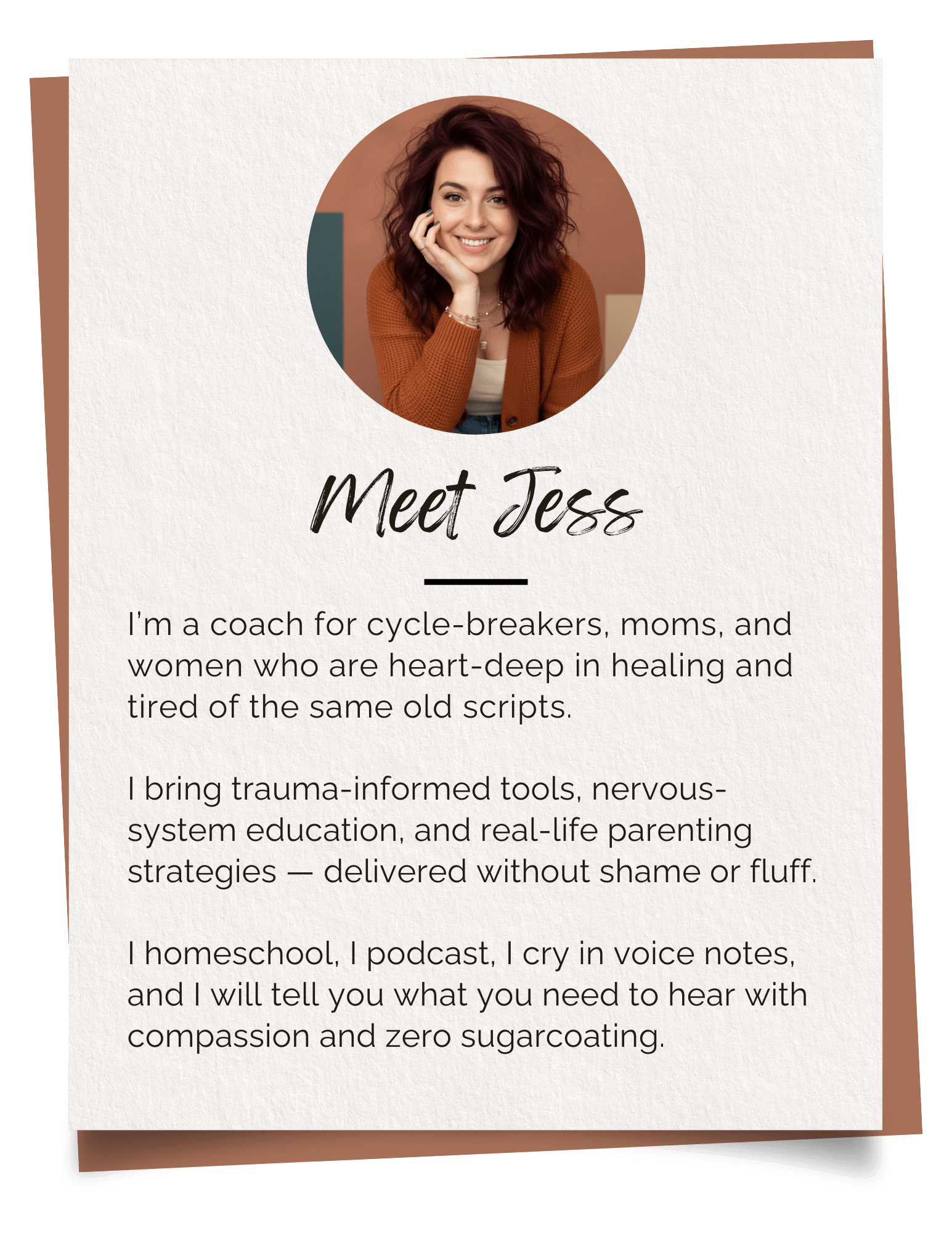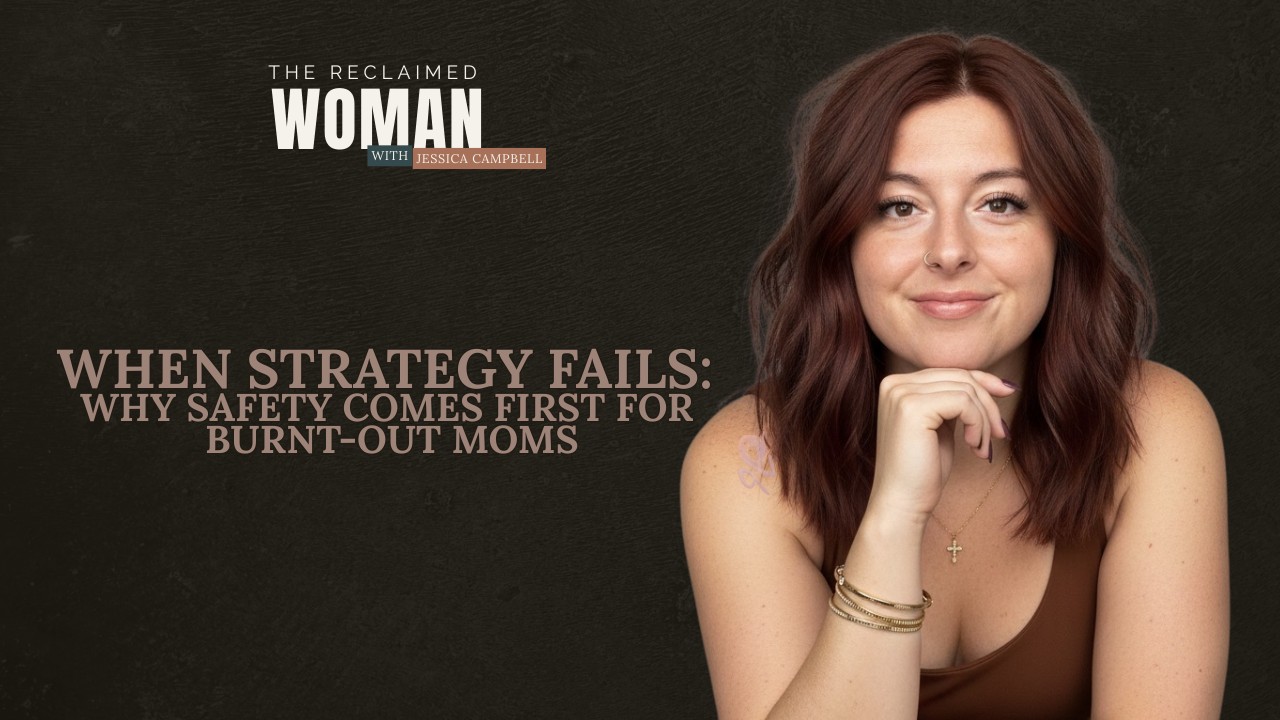
You’re not imagining it.
The strategies everyone told you would “work” don’t always land. Timeouts. Counting to three. Taking toys away. Even those gentle “talk-it-through” scripts that are supposed to calm things down. They fall flat. Or backfire. Or just...make things worse.
It’s not that you’re doing it wrong. It’s that your child’s brain literally can’t process your words when their nervous system is in fight-or-flight.
And here’s the kicker...neither can yours.
This is why more and more trauma-informed parenting approaches focus on coregulation and not punishment as the foundation for emotional development and behavior change. It’s not fluffy. It’s neuroscience. And it’s something you can start doing today, even if you weren’t raised with this kind of support.
What Actually Happens in a Child’s Brain During a Meltdown
Let’s talk brain science but in plain English.
The part of the brain that helps kids think clearly, reflect, regulate, and make choices? It’s called the prefrontal cortex. And it doesn’t fully mature until your mid to late 20s.
When your child is overwhelmed (screaming, throwing, shutting down), their prefrontal cortex goes offline. Their body is flooded with stress hormones. Their brain is on high alert. Survival mode. And that means they literally can’t access logic, reasoning, or “lessons.”
So when you try to correct or punish during a meltdown, it doesn’t work. Not because your child is defiant. But because their brain is doing exactly what it’s wired to do when it doesn’t feel safe.
Why Timeouts Often Make Things Harder
Let’s be real. Sometimes, we just want space. That’s okay.
But the traditional timeout—“Go to your room and think about what you did”—doesn’t actually help kids learn. In fact, it often leaves them feeling isolated and ashamed while their nervous system is still flooded.
They don’t calm down and reflect. They sit in that dysregulation with no tools and no support. And if you were raised with harsh consequences, silence, or guilt, timeouts might even trigger your own nervous system. Which makes it harder to stay calm, connect, or feel in control.
This is why many parents who are breaking cycles are turning to coregulation.
What Exactly Is Coregulation?
Coregulation is the process of helping your child regulate through your calm presence. You’re not “fixing” their emotions. You’re helping their brain feel safe enough to come back online.
It’s not the same as letting things slide. You’re still holding boundaries. You’re still saying no when needed. But instead of sending them away, you stay connected.
It might look like:
- Sitting nearby and saying, “I see how upset you are. I’m here.”
- Holding a limit with warmth: “I won’t let you hit. Let’s keep our bodies safe.”
- Taking deep breaths out loud so your child can match your rhythm
- Waiting until they’re calm before talking things through
You’re modeling regulation, not demanding it. And over time, your child’s nervous system learns to do the same.
Coregulation Is Especially Powerful for Kids With Trauma or Neurodivergence
If your child has ADHD, sensory processing challenges, anxiety, or a history of trauma, coregulation isn’t just helpful. It’s ESSENTIAL.
These kids experience emotions more intensely. They may have a harder time self-regulating, shifting between tasks, or calming themselves down.
They don’t need stricter consequences. They need nervous system support. And honestly? So do you.
Coregulation supports both of you. When you stay calm with your child, you’re helping them feel safe and helping yourself respond instead of react.
You’re Not “Too Soft” for Parenting This Way
Let’s shut that voice down right now.
There’s nothing “soft” about staying present through a scream-fest or tantrum.
Coregulation takes emotional strength. It takes breaking your own patterns. It takes choosing connection over control—even when you're tired, triggered, and tempted to yell.
And you’re not avoiding boundaries. You’re just delivering them in a way your child’s brain can actually receive.
Example:
- Instead of: “Go to your room until you’re done crying.”
- Try: “You’re feeling a lot right now. I’m going to sit with you. We’ll talk when you're ready.”
That’s not permissive. That’s POWERFUL.
Five Coregulation Moves You Can Practice Today
No scripts. No Pinterest charts. Just real tools you can try, even in the mess.
- Name what you see/hear, not what they “should” feel.
“That was really disappointing.”
“You’re so frustrated you could scream.” - Use your breath as a cue.
Breathe slowly and audibly. It calms your body and signals safety to theirs. - Let silence do some of the work.
You don’t have to explain everything right away. Just being with them can be enough. - Use simple, grounded language.
“I’m right here.”
“We’ll figure this out.”
“It’s okay to feel mad. I’ve got you.” - Repair when needed.
You will lose it sometimes. So will they. Come back and say:
“That was a hard moment. I love you. We’re still okay.”
Gentle Parenting Isn’t About Perfection
This isn’t about always staying calm or never raising your voice. It’s about building a relationship where your child feels safe to fall apart and trusts that you’ll help them come back together.
Some days, you’ll snap. You’ll walk away. You’ll want to scream into a pillow. That doesn’t make you a bad parent. That makes you human.
What matters is returning. Repairing. Choosing connection again. And in doing that, you’re not just helping your child regulate—you’re healing your own nervous system too.








